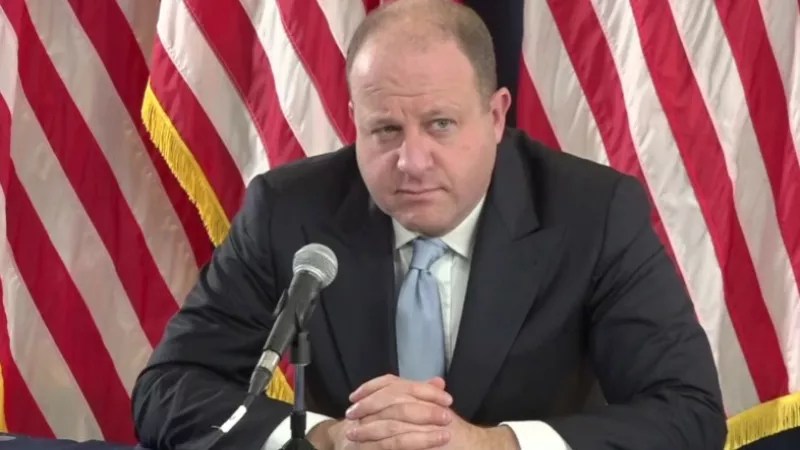
colorado.gov via YouTube

Audio By Carbonatix
Governor Jared Polis concluded his November 24 press conference about the fight against COVID-19 in Colorado with a cheery sentiment: “I want to wish everybody a happy and safe Thanksgiving.”
Before these words, however, Polis and Colorado Department of Public Health and Environment epidemiologist Dr. Rachel Herlihy offered a stark assessment regarding the status of the novel coronavirus in the state. Among the points of emphasis: Those who insist on celebrating Thanksgiving with ten or more people from different households have as high as a one-in-four chance that an attendee is infected, businesses in Level Red counties that defy health orders are in danger of at least temporarily losing important licenses, and deaths from the disease in Colorado could more than double by year’s end if safety protocols aren’t improved in a significant way…starting now.
Polis noted that 4,150 cases of COVID-19 have been confirmed in the state over the most recent 24-hour period – an improvement over recent daily totals of more than 6,000 cases. But other news was far less positive. He revealed that many municipalities are already on the brink of exceeding their intensive-care-unit bed capacity, including Denver, which has just 25 ICU beds remaining; Colorado Springs, now down to fourteen extras; and Weld County, with only three unoccupied. Moreover, modeling studies report that one out of every 41 Coloradans is now a carrier of the virus. This rate is “significantly up from the prior week and the highest percentage of contagion that we’ve ever had,” Polis pointed out.
As a result, if someone goes to a grocery store with forty or fifty other customers, one of them is likely to have COVID-19, Polis stressed – and while transmission is less likely if all parties are masked and no one is close to an infected individual for more than a minute or two, the odds increase in a major way for those who aren’t wearing masks during encounters that last fifteen minutes or longer.
Thanksgiving dinners are rife with examples of such interactions, Polis explained, which is why he strongly encouraged residents of the state to celebrate the holiday exclusively with members of their own households this year. Should a person at a gathering be infected, he said, “there’s a very high chance it will spread to others – maybe three, four or five others.” The results could have tragic consequences, particularly for elderly relatives, and while he stopped short of berating individuals who gather anyway, he hinted that subsequent tragedies would be on the heads of those who ignore the advice of public-health officials. “Ultimately, everybody has to live with their own conscience,” he maintained.
Herlihy reiterated these assertions in a stark way. Around 2,800 people in Colorado have died after contracting COVID-19 since the start of the pandemic; the number of fatalities attributed directly to the virus is a bit lower. But if safety protocols, including mask use in public, social distancing and avoiding gatherings, don’t improve from the current estimate of 65 percent compliance to around 80 percent, the number of deaths in Colorado could surpass 6,000 by the end of 2020. Likewise, ICU bed capacity might be overwhelmed as soon as mid-December, especially if Thanksgiving causes cases to multiply, as did previous holidays such as the Fourth of July and Labor Day.
In the meantime, some counties and municipalities continue to defy state public-health orders, with numerous Loveland restaurateurs reportedly planning to continue offering indoor dining even though Level Red restrictions forbid the practice. County commissioners in Weld County seem to be ignoring the edicts, too. During a question-and-answer session, Polis was asked what he plans to do about such acts of rebellion. He responded by mentioning the possibility of businesses being stripped of licenses, but generally used pre-pandemic examples, such as a liquor store being slapped by state regulators for serving a teenager.
Meanwhile, Polis once again stressed the importance of Colorado students receiving in-person education at schools. To that end, he announced that a new task force will meet for the first time tomorrow, November 25, to brainstorm about the best ways for such instruction to take place in the first half of 2021, preferably without the frequent interruptions that have resulted because of outbreaks or staff shortages caused by quarantines. He also ripped the federal government for both the failed initial response to COVID-19 and its more recent inability to pass another stimulus package that might prevent struggling families from “losing every ounce of security they have.”
Many Coloradans have already suffered that fate, which makes giving thanks tougher than usual this year.